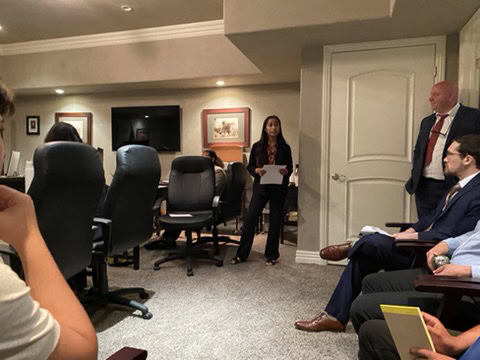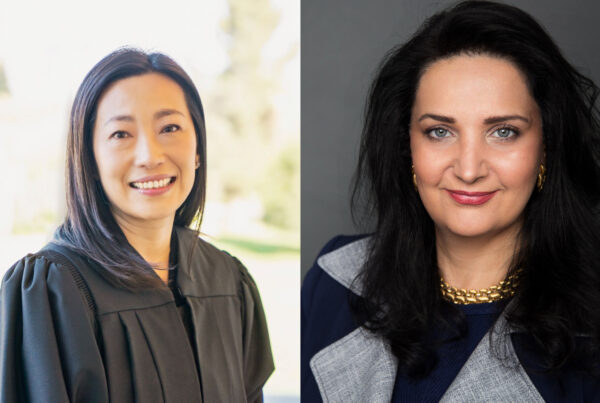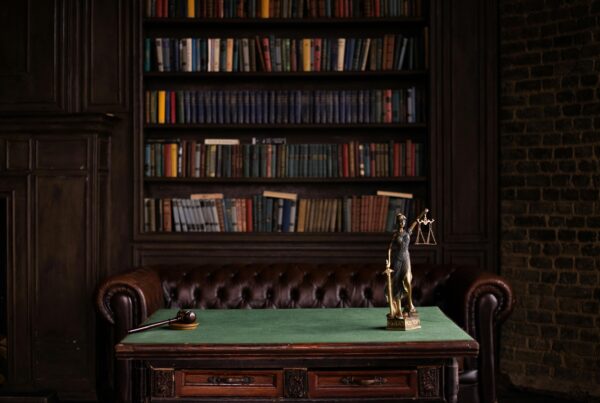Three law students got the chance to apply their skills in a mock trial held by the Legal Aid Society of San Bernardino and hosted in the San Bernardino law office of attorney William Shapiro July 15.
University of San Francisco student Lilyenne Huynh brought the case for the government, arguing that journalist Lee Croddy aided and abetted the robbery of a government employee, in order to publish secret documents about the existence of alien spacecraft.
University of La Verne students Belyn Peters and Karen Patel defended Croddy.
San Bernardino Superior Judge Teresa Bennett presided over the case. Attorneys Tess Ponce and Christopher Markarian mentored, and Sarah Boger








